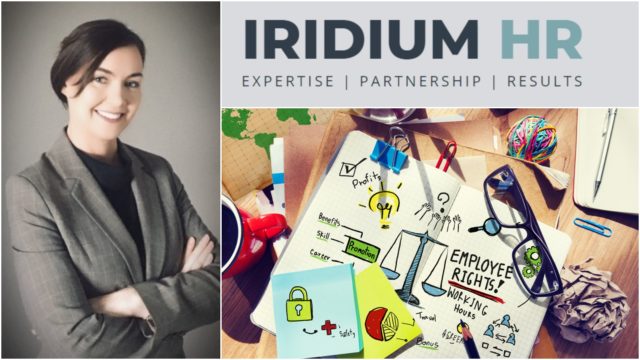The Laois Jobs Fair is a great opportunity for candidates to get themselves in front of employers in the hope of securing a new career opportunity.
We strongly advise attendees to bring a number of copies of an up to date CV with them on the day, and have ready to hand out to employers whose roles/opportunities are of interest to them. With that in mind, here are some helpful tips on how best to present yourself through your Curriculum Vitae.
1st Impressions!
Firstly, you should think of your CV as your “shop window”. It needs to be polished and professional, as it’s your opportunity to make a positive first impression and to invite the reviewer (for example, business owner, HR Manager, line manager) to want to read more and, ultimately, to invite you to the next stage of the process, i.e., an interview!
Various studies show that recruiters take less than a minute to decide if an application/CV is worth considering.
Therefore, a clean, clear and well formatted CV is essential in the first instance. CV’s that are poorly formatted can instantly create a negative first impression and, regardless of the quality of information and/or your overall suitability to the position, can be discounted because of poor, haphazard, “sloppy” formatting.
This can (rightly) be considered as lacking attention to detail, and most employers want to recruit personnel with good attention to detail!
Good fonts to use include Arial, Times New Roman, Garamond and Calibri; size wise, use font 10-11, but you should use 12-14 and bold formatting for key headings to make them stand out.
However, whatever font you chose, stick to it throughout the entire document! You should also ensure that your paragraph, spacing and indentations are all consistent.
Content/Key Elements
Key elements to include in your CV are as follows:
Personal Details – years ago candidates included (what is now considered to be) far too much information under this heading, such as date of birth, nationality, health status and even marital status! Nowadays, simply include your full name and contact postal address, email and mobile number(s).
Education & Professional Qualifications – this doesn’t just include your 2nd and (where applicable) 3rd level education, but should also include any continuing professional development or courses which you have undertaken, notably when and where they relate to the position on offer.
Employment History – the information in this section needs to be clear and concise – company name, position and dates of employment. Under each position summarise, using bullet points, your key duties/responsibilities and achievements.
Don’t use lengthy sentences/paragraphs, as you will lose the reader. Instead, highlight using action words such as “organised”, “initiated”, “achieved”, “developed”, “implemented”, linking them back to the position on offer as much as possible.
Both Education & Professional Qualifications and Employment History should be listed in reverse chronological order.
Key Skills – this is an opportunity for you to highlight and summarise your core strengths and skills, and essentially what you can bring to the hiring company. You should include your job-related skills, such as the technical skills learned in a previous job that you can bring, and that are relevant, to the role on offer; for example, experience using systems or databases. You should also include transferrable skills, such as teamwork/collaboration skills which you developed though working on a group project in a previous role.
Interests & Hobbies – employers like to see evidence that candidates have interests outside of work however, ideally or where possible you should include interests and hobbies which might support your overall application. For example, charity or volunteering work can be appealing to an employer as it shows your dedication in giving some of your free time to a worthy cause.
Whilst it is still common to see references to socialising on a CV, this doesn’t give the recruiter any information about you and your skills as a person.
I always remember a candidate who I coached a number of years ago and, when it came to this discussion, he mentioned that he built and sold bespoke skateboards in his spare time.
He didn’t think it was relevant, but I strongly advised him to highlight this on his CV, as it demonstrated so many transferable skills and qualities that a number of prospective employers would find attractive; for example, self-drive, initiative and a commercial mindset.
References – historically, candidates included details of 2-3 referees on their CV. Nowadays it is acceptable to include a simple statement such as “References available on request”, for 3 key reasons; references will not be required at interview stage, you may decide to nominate different referees depending on the job you have applied for, and it will save you valuable space!
However, if you are requested (on the job advertisement) to include references, please ensure that you do!
Overall, the content in your CV needs to emphasise your skills and, ultimately, your suitability to the role. In the digital age, some recruiters can use automated systems which can (through the use of keyword search methodology) determine suitability of candidates for interview.
Therefore, your CV needs to include key words which are relevant to the role which you are applying for.
Relevance – Tailoring your CV
Once you have a drafted a template CV, you should then tailor/ tweak it depending on the specific role you are applying for. Review the job and person specification and ask yourself if you can deliver in the role. Then you can “test” your CV to see if it reflects what the employer is looking for, and adapt it accordingly. What you include in your CV must be relevant to the job on offer.
The exhibitors at the 2023 Laois Jobs Fair and their vacancies are available at www.laoisjobsfair.ie, so take a look, and ensure that the CV you bring with you on the day reflects the roles of interest to you.
Quality over Quantity
Over the years many people have referred to what they consider to be the “holy grail” of CV length, i.e. no more than 2 pages. Don’t get hung up on this. If your CV meets the brief, and contains information relevant to the position, then include, and if it exceeds 2 pages, so be it.
However, in a lot of cases, including key or relevant information will assist you to keep your CV to the “2-page limit”!
Honesty is ALWAYS the best policy!
Never include information, experience, skills etc. on your CV that are in any way inaccurate or misleading. Anything on your CV can, and may, be probed during the interview process.
Whilst it is recommended to review the job advertisement and role specification, and to edit/adapt/amend your CV as much as possible to suit the particular role on offer, if you don’t have practical experience and examples of what is required, don’t make it up!
Instead, focus on the skills and strengths which you do have and make the most of these. Or perhaps you are not the right fit for the role on offer and this might indicate that you should focus your job search on a different role or in a different area.
Proof and Re-Proof!
Once you have drafted and finalised your CV, take some time and come back to it a while later and read it from start to finish, paying attention to every line, word and detail. After you do this, give your CV to a trusted family member or friend and ask them to proof it for you also.
You might just pick up on a typo or make some final tweaks and changes. You might even ask a trusted person to give you feedback on the content also.
In terms of spell check, just bear in mind that whilst some words won’t get picked up by spell check, that different words have different meanings, e.g. you might mean to say “I implemented” but you may mistype and put “I implanted” – 2 very different meanings!
If you put the right time and preparation into writing a CV it will pay off, and you will dramatically increase your chances of being invited to an interview. Be compelling, convincing, clean, clear and concise!
Hopefully by following these hints and tips it will assist you to put your best foot forward on paper, and hopefully put you in a strong position to be called to the interview stage.
I will be covering these topics and more from 3 pm at the UnLaois your Full Potential Stage (Dunamaise 3 room, which will be signposted) at the Laois Jobs Fair on Monday 20th February in the Midlands Park Hotel, and I will also be complementing the session with key interview tips and guidance.
I look forward to seeing as many attendees as possible on the day, and wish everyone attending the best of luck with their job search and future career paths.




















